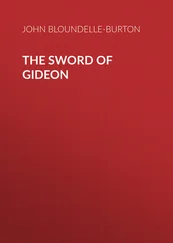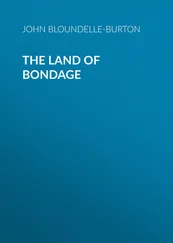John Bloundelle-Burton - A Bitter Heritage
Здесь есть возможность читать онлайн «John Bloundelle-Burton - A Bitter Heritage» — ознакомительный отрывок электронной книги совершенно бесплатно, а после прочтения отрывка купить полную версию. В некоторых случаях можно слушать аудио, скачать через торрент в формате fb2 и присутствует краткое содержание. Жанр: foreign_antique, foreign_prose, на английском языке. Описание произведения, (предисловие) а так же отзывы посетителей доступны на портале библиотеки ЛибКат.
- Название:A Bitter Heritage
- Автор:
- Жанр:
- Год:неизвестен
- ISBN:нет данных
- Рейтинг книги:3 / 5. Голосов: 1
-
Избранное:Добавить в избранное
- Отзывы:
-
Ваша оценка:
- 60
- 1
- 2
- 3
- 4
- 5
A Bitter Heritage: краткое содержание, описание и аннотация
Предлагаем к чтению аннотацию, описание, краткое содержание или предисловие (зависит от того, что написал сам автор книги «A Bitter Heritage»). Если вы не нашли необходимую информацию о книге — напишите в комментариях, мы постараемся отыскать её.
A Bitter Heritage — читать онлайн ознакомительный отрывок
Ниже представлен текст книги, разбитый по страницам. Система сохранения места последней прочитанной страницы, позволяет с удобством читать онлайн бесплатно книгу «A Bitter Heritage», без необходимости каждый раз заново искать на чём Вы остановились. Поставьте закладку, и сможете в любой момент перейти на страницу, на которой закончили чтение.
Интервал:
Закладка:
At last Julian was alone. Alone with some hours before him in which he could reflect and meditate on the occurrences of this eventful day.
He did now that which perhaps, every man, no matter how courageous he might have been, would have done in similar circumstances. He made a careful inspection of the room, looking into a large wardrobe which stood in the corner, and, it must be admitted, under the bed also; which, as is the case in most tropical climates, stood in the middle of the room, so that the mosquitoes that harboured in the whitewashed walls should have less opportunity of forcing their way through the gauze nets which protected the bed. Then, having completed this survey to his satisfaction, he put his hand into his breast and drew from a pocket inside his waistcoat that which, it may well be surmised, he was not very likely to be without here. This was an express revolver.
"That's all right," he said as, after a glance at the chambers, he laid it on the table by his side. "You have been of use before, my friend, in other parts of the world and, although you are not likely to be wanted here, you don't take up much room."
"Now," he went on to himself, "for a good long think, as the paymaster of the Mongoose always used to say before he fell asleep in the wardroom and drove everybody else out of it with his snores. Only, first there are one or two other little things to be done."
Whereon he walked out on to the balcony-the windows of course being open-and gave a long and searching glance around, above, and below him. Below, to where was the veranda of the lower or ground floor, with, standing about, two or three Singapore chairs covered with chintz, a small table and, upon it, a bottle of spirits and some glasses as well as a large carafe of water. All these things were perfectly visible because, from the room beneath him, there streamed out a strong light from the oil lamp which stood on the table within that room, while, even though such had not been the case, Julian was perfectly well aware that they were there.
He and Sebastian had sat in those chairs for more than an hour talking after the evening meal, while Madame Carmaux, whose other name he learnt was Miriam, had sat in another, perusing by the light of the lamp the Belize Advertiser. Yet, now and again, it had seemed to Julian as though, while those dark eyes had been fixed on the sheet, their owner's attention had been otherwise occupied, or else that she read very slowly. For once, when he had been giving a very guarded description of George Ritherdon's life in England during the last few years, he had seen them rest momentarily upon his face, and then be quickly withdrawn. Also, he had observed, the newspaper had never been turned once.
"Now," he said again to himself, "now, let us think it all out and come to some decision as to what it all means. Let us see. Let me go over everything that has happened since I pulled up outside that inn-or gambling house!"
He was, perhaps, a little more methodical than most young men; the habit being doubtless born of many examinations at Greenwich, of a long course in H.M.S. Excellent, and, possibly, of the fact that he had done what sailors call a lot of "logging" in his time, both as watchkeeper and when in command of a destroyer. Therefore, he drew from his pocket a rather large, but somewhat unbusinesslike-looking pocketbook-since it was bound in crushed morocco and had its leaves gilt-edged-and, ruthlessly tearing out a sheet of paper, he withdrew the pencil from its place and prepared to make notes.
"No orders as to 'lights out,'" he muttered to himself before beginning. "I suppose I may sit up as long as I like."
Then, after a few moments' reflection, he jotted down:
"S. didn't seem astonished to see me. (Qy?) Ought to have done so, if I came as a surprise to him. Can't ever have heard of me before. Consequently it was a surprise. Said who he was, and was particularly careful to say who his mother was, viz. I. S. R. (Qy?) Isn't that odd? Known many people who tell you who their father was. Never knew 'em lug in their mother's name, though, except when very swagger. Says Madame Carmaux relative of his mother, yet Isobel Leigh was daughter of English planter. C's not a full-bred Englishwoman, and her name's French. That's nothing, though. Perhaps married a Frenchman."
These little notes-which filled the detached sheet of the ornamental pocketbook-being written down, Julian, before taking another, sat back in his chair to ponder; yet his musings were not satisfactory, and, indeed, did not tend to enlighten him very much, which, as a matter of fact, they were not very likely to do.
"He must be the right man, after all, and I must be the wrong one," he said to himself. "It is impossible the thing can be otherwise. A child kidnapped would make such a sensation in a place like this that the affair would furnish gossip for the next fifty years. Also, if a child was kidnapped, how on earth has this man grown up here and now inherited the property? If I was actually the child I certainly didn't grow up here, and if he was the child and did grow up here then there was no kidnapping."
Indeed, by the time that Julian had arrived at this rather complicated result, he began to feel that his brain was getting into a whirl, and he came to a hasty resolution. That resolution was that he would abandon this business altogether; that, on the next day but one, he would go to Belize and pay his visit to the Sprangers, while, when that visit was concluded, he would, instead of returning to Desolada, set out on his return journey to England.
"Even though my uncle-if he was my uncle and not my father-spoke the truth and told everything exactly as it occurred, how is it to be proved? How can any legal power on earth dispossess a man who has been brought up here from his infancy, in favour of one who comes without any evidence in his favour, since that certificate of my baptism in New Orleans, although it states me to be the son of the late owner of this place, cannot be substantiated? Any man might have taken any child and had such an entry as that made. And if he-he my uncle, or my father-could conceive such a scheme as he revealed to me-or such a scheme as he did not reveal to me -then, the entry at New Orleans would not present much difficulty to one like him. It is proof-proof that it be-" He stopped in his meditations-stopped, wondering where he had heard something said about "proof" before on this evening.
Then, in a moment, he recalled the almost whispered words; the words that in absolute fact were whispered from the balcony below, before he went down to take his seat at the supper table; the utterance of Sebastian:
"Know-of course he must know. But knowledge is not always proof."
How strange it was, he thought, that, while he had been indulging in his musings, jotting down his little facts on the sheet of paper, he should have forgotten those words.
"Knowledge is not always proof." What knowledge? Whose? Whose could it be but his! Whose knowledge that was not proof had Sebastian referred to? Then again, in a moment-again suddenly-he came to another determination, another resolve. He did possess some knowledge that this man, Sebastian could not dispute-for it would have been folly to imagine he had been speaking of any one else but him-though he had no proof. So be it, only, now, he would endeavour to discover a proof that should justify such knowledge. He would not slink away from the colony until he had exhausted every attempt to discover that proof. If it was to be found he would find it.
Perhaps, after all, his uncle was his uncle, perhaps that uncle had undoubtedly uttered the truth.
He rose now, preparing to go to bed, and as he did so a slight breeze rattled the slats of the green persianas, or, as they are called in England, Venetian blinds-a breeze that in tropical land often rises as the night goes on. It was a cooling pleasant one, and he remembered that he had heard it rustling the slats before, when he was engaged in making his notes.
Читать дальшеИнтервал:
Закладка:
Похожие книги на «A Bitter Heritage»
Представляем Вашему вниманию похожие книги на «A Bitter Heritage» списком для выбора. Мы отобрали схожую по названию и смыслу литературу в надежде предоставить читателям больше вариантов отыскать новые, интересные, ещё непрочитанные произведения.
Обсуждение, отзывы о книге «A Bitter Heritage» и просто собственные мнения читателей. Оставьте ваши комментарии, напишите, что Вы думаете о произведении, его смысле или главных героях. Укажите что конкретно понравилось, а что нет, и почему Вы так считаете.












